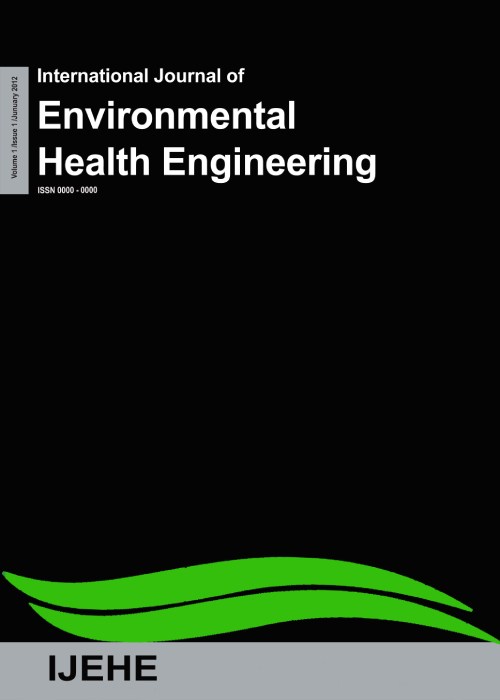فهرست مطالب
International Journal of Environmental Health Engineering
Volume:8 Issue: 4, Jan 2019
- تاریخ انتشار: 1398/10/01
- تعداد عناوین: 1
-
-
Page 1Aims
Comparing to strong traditional oxidation, the persulfate and sulfate radicals was characterized by relatively low cost and easy application. The present study aimed to investigate the performance of sulfate radical-based advanced oxidation process (SR-AOP) for pretreatment of compost leachate in order to improvement of its biodegradability.
Materials and MethodsThe sulfate radicals was used for pretreatment of compost leachate in the batch reactor followed by aerobic and anaerobic biological reactors.
Resultsthe results of combination of SR-AOP with biological treatment showed that BOD5/COD ratio was increase. However, the different trend was observed in COD removal by sequencing batch reactor (SBR) and anaerobic sequencing batch reactor (ASBR). Comparing to SR-AOP with ASBR, the SR-AOP with SBR substantially improved final COD removal efficiency up to 70%. Although pretreatment of compost leachate with the SR-AOP clearly improved the BOD5/COD ratio of entering raw leachate into ASBR (from 0.4 to 0.65), but, the COD removal efficiency was ranging between 25% and 27%.
ConclusionBased on the results, it can be concluded that the BOD5/COD ratio cannot be suggested as biodegradability improvement indicator without considerations of changing of substrate nature during pretreatment.
Keywords: Aerobic sequencing batch reactor, composting leachate, sequencing batch reactor, sulfate radical


